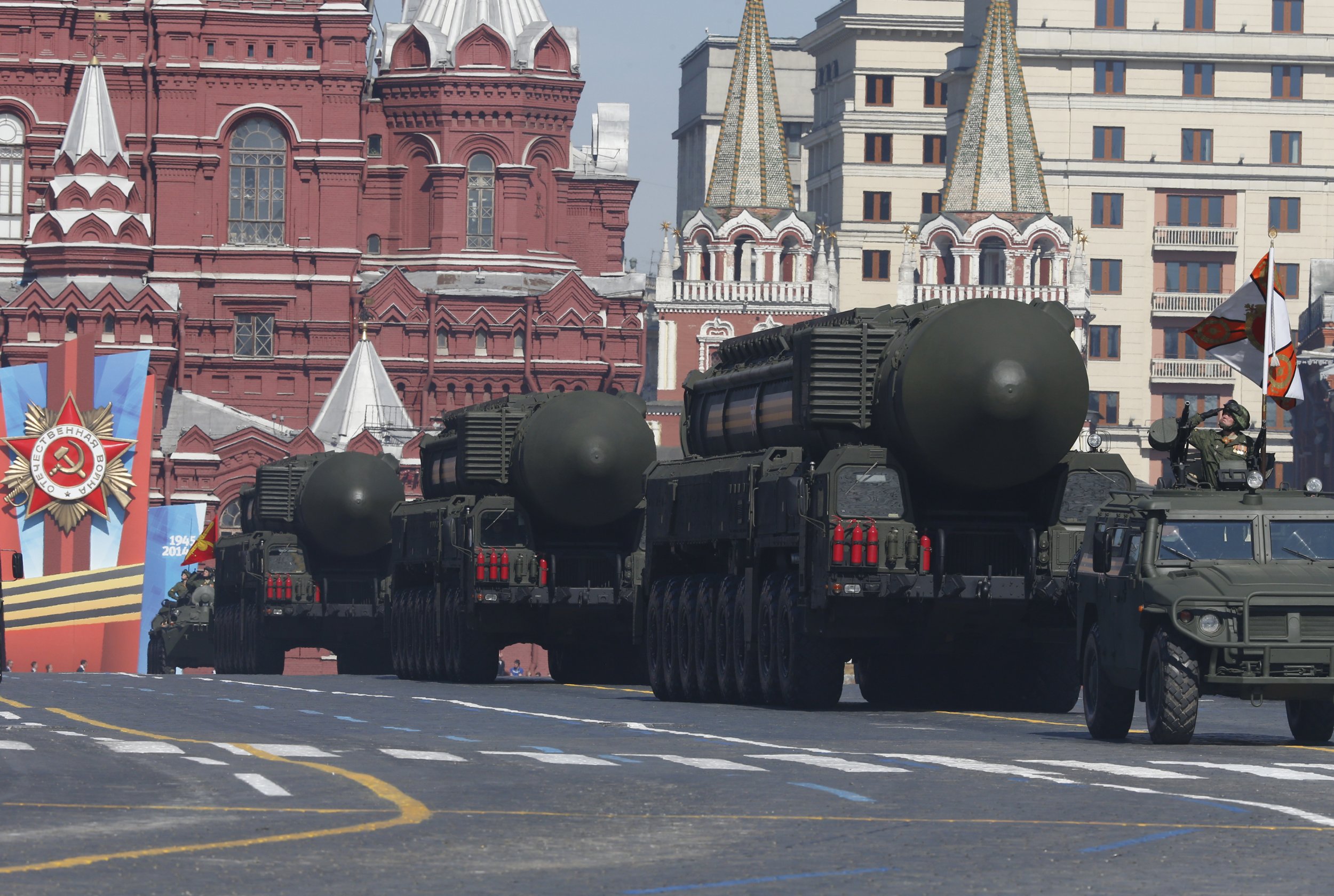
Russia has ordered a snap drill of its Strategic Missile Troops (RVSN), which control the country's 305 land-based intercontinental ballistic missiles and nuclear warheads, according to a statement issued by the unit's high command today.
"More than 1,200 servicemen have been drafted to take part in the test exercises," Colonel Igor Yegorov from the RVSN said. "Throughout 2015, we have planned at least four similar such drills," he added.
Last October, Yegorov said that by the start of 2015, up to 1,000 troops from the RVSN would be charged with what he called 'particularly dangerous' work with nuclear arms.
The drills, which Yegorov says aim to educate Russia's missile unit in anti-terrorist combat, are due to take place in the Uzhurskoe rocket facilities, in Siberia, between the central Russian cities of Novosibirsk and Krasnoyarsk.
According to Yegorov, Russia's Ministry of Internal Affairs, Ministry of Emergency Situations and the Federal Security Service are all cooperating with Russia's ballistic missile command in the drills, as some of the exercises will be dedicated to raising the RVSN's responsiveness and effectiveness.
"Servicemen will go through over 20 exercises, focusing on missile-defence, suppressing attacks against land units, evacuation drills and bomb dismantling practice," Yegorov said.
This will be the first drill of the year for Russia's RVSN and comes after the Kremlin's decision last summer, to add an extra 8,500 troops to its 18,000-strong missile unit by 2020.
According to the Moscow Times some $650 billion dollars will go into the overhaul of Russia's entire armed forces in the next five years, with the modern replacements somewhat overdue for its aging, Soviet-standard nuclear arsenal.
The announcement of the drill also follows the Boston Globe's reports yesterday that Russia had explicitly and abruptly ended its nuclear partnership with the US which has allowed Washington to monitor and help secure Russia's military stockpile since 1992.
The newspaper based their reports on the accounts of three individuals who were present at the meeting, speaking on the condition of anonymity and the minutes from the meeting.
The decision was reportedly made by the Russian government behind closed doors in a meeting with US representatives in Moscow last month, coming into effective this year.
The Pentagon and the US Department of Energy were the US backers of the project which has already cost Washington $2 billion dollars since monitoring started 23 years ago.
The project had been envisioned to go on until 2018, with the US already having set aside $100 million towards this year's spending, with 13 Russian facilities due to be put under US surveillance.
It was reported the straining of diplomatic relations between the two countries over Russia's military presence in Ukraine contributed to the "unexpected" decision.
The Russian military has sought to pursue joint ventures with partners outside the West since the Ukraine crisis, most recently embarking on a military partnership with Iran, as Russian defence minister Sergey Shoygu announced the two countries would undergo joint training sessions and strengthen military cooperation at a conference in Tehran today.
Uncommon Knowledge
Newsweek is committed to challenging conventional wisdom and finding connections in the search for common ground.
Newsweek is committed to challenging conventional wisdom and finding connections in the search for common ground.
About the writer
I am a Staff Writer for Newsweek's international desk. I report on current events in Russia, the former Soviet Union ... Read more
To read how Newsweek uses AI as a newsroom tool, Click here.








